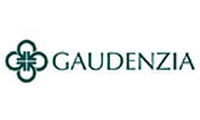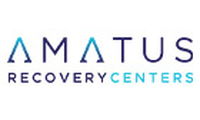Heroin Addiction Rehab
 Heroin abuse drastically impacts a person’s well-being, their relationships with friends and family and their ability to succeed in work or school. If you or a loved one is suffering with heroin addiction then it’s important to understand the disease and the recovery options that are available.
Heroin abuse drastically impacts a person’s well-being, their relationships with friends and family and their ability to succeed in work or school. If you or a loved one is suffering with heroin addiction then it’s important to understand the disease and the recovery options that are available.
What is Heroin?
Heroin is an opioid drug made from the poppy plant and comes in forms such as white or brown powder or sticky black tar heroin. Heroin has many street names including white horse, H, Big H, hell dust and smack. Heroin is highly addictive and can cause serious health problems.
What Are Warning Signs of Heroin Abuse?
There are physical, behavioral and advanced warning signs of heroin use. Heroin addiction is a physical dependency in which the brain becomes dependent on the drug for normal functioning. This occurs because of how rapidly and easily the drug enters the brain and binds to the brain’s opioid receptors.
This affects bodily functions like heart rate, sleep, breathing and feelings of pleasure and pain. As the brain becomes reliant on heroin, more of the drug is required to prevent conditions like insomnia, anxiety, racing heartbeat, hyperventilation, muscle cramps and more.
Physical Signs of Heroin Abuse:
- A declining physical appearance
- Drowsiness
- Non-responsiveness
- Change in appetite
- Weight loss or gain
- Severe flu-like symptoms, including nausea/vomiting, sweating, shaking, etc.
- Slowed heart rate
- Increased/decreased pupil size
Behavioral Signs of Heroin Use:
- A sudden shift or change in personality
- Avoiding friends and family
- Loss of interest in normal activities or substituting those activities with the use of heroin
- Nervousness, irritability or moodiness
- Decreased performance at work or school
- Isolation
- Increased demands for privacy or engaging in secretive behavior
- Stealing
- Wearing clothing that hides needle marks
Advanced Warning Signs of Heroin Use:
- Finding syringes and/or small bags with a powdery substance or residue inside
- Missing spoons, bottle caps, shoe laces, belts or medications
- Discovering burnt spoons or bottle caps
- A loss of personal control over heroin use (inability to stop)
- Obsessive thoughts of heroin use (life revolves around the use of heroin)
- Continued use of heroin despite negative consequences
- Increased use and tolerance level
- Using heroin to prevent or relieve withdrawal symptoms
What Are Symptoms of Heroin Withdrawal?
Withdrawal symptoms from opioids, specifically heroin, can be severe because heroin binds to the brain’s opioid receptors quickly and affects vital bodily functions. Withdrawal symptoms can start just a few hours after use.
Heroin withdrawal symptoms include:
- Nausea, vomiting and diarrhea
- Insomnia
- Severe muscle cramps and aching bones
- Restlessness
- Anxiety or nervousness
- Shaking
- Sweating
- Depression
- Cold flashes
- Constant and uncontrollable leg movements
- Sensation of bugs crawling on the skin
- Intense cravings for heroin
- Severe itchiness
Heroin Addiction Recovery
There are three types of treatment for heroin addiction: detox, residential treatment and outpatient treatment.
Heroin Detox
Medically supervised detox is highly recommended because opioid withdrawal symptoms for heroin are severe and at-home detox can be dangerous. Any decrease in use or sudden stopping of heroin use results in severe withdrawal symptoms.
Medically supervised detox is considered safer and there are opiate blocker medications that can ease the severity of withdrawal symptoms. The medication is chosen based on the person’s medical needs or unique factors. These medications fall into three categories:
- Agonists such as Methodone which activate opioid receptors
- Partial agonists such as Buprenorphine that activate opioid receptors producing a smaller response
- Antagonists such as Naltrexone that block the receptors, interfering with the pleasurable effects of opioids
Residential Heroin Addiction Treatment
Residential treatment can be a good option because heroin withdrawal symptoms are extreme and the detox process is unpleasant and potentially dangerous. Residential treatment offers medically supervised detox and follows up with treatment for the addiction itself. The recovery process is introduced and steps are employed to treat the behavioral effects of addiction as well as the physical, emotional and spiritual effects.
Residential treatment in combination with medically supervised detox (rather than detox alone) addresses the behavioral effects of heroin addiction and can also prevent a post-detox overdose. This occurs when a person uses heroin again after detox, but their body is no longer used to high doses of heroin.
Residential treatment can be short-term or long-term. Short-term residential treatment offers intensive treatment for a brief duration of time and is usually based on a 12-Step approach to addiction treatment. The typical stay in a short-term residential treatment facility is 3 to 6 weeks. The most commonly used and referenced of these requires a 28-day duration of stay.
Long-term residential treatment offers 24-hour daily care in a non-hospital setting. Typically, the type of care or treatment model is referred to as a therapeutic community (TC) in which the patient stays in the facility for anywhere from 6 to 12 months.
Outpatient Heroin Rehab
Because residential treatment facilities are often very costly, outpatient treatment is on the rise as a less expensive option. Additionally, for those who have been to residential treatment and have relapsed, outpatient (low-intensity or intensive) treatment can be an effective alternative to returning to residential treatment.
However, low-intensity outpatient treatment is truly more about drug education and offers very little in the way of actual treatment. So, for those who are in the throes of heroin addiction, something more intensive would certainly be recommended/required.
Intensive outpatient programs (IOP) are comparable to residential treatment in that they offer the same level of intensive day therapy involving group meetings, individual sessions, access to social workers and counselors and a family component. The main difference is the lack of overnight stay, 24-hour care and confinement to the facility.
What are the stages of recovery from heroin addiction?
Recovery from heroin addiction follows three stages: early recovery, mid-way point/action stage, and late-stage recovery. Each stage represents a different focus and emphasis in the recovery process.
Early Recovery
Early recovery involves detoxification from heroin. During this time, individuals who are struggling with an addiction to heroin will be sensitive or emotionally fragile, non-compliant with regard to abstinence from all substances and typically resistant to addiction treatment. During this time, treatment is focused on dealing with the acute emotional issues (and any co-occurring mood disorders or other diagnoses), achieving sobriety, relapse prevention, medically managing/decreasing cravings for heroin, etc. Group therapy or sessions are also typically introduced at this time with emphasis on hope and cohesion to establish a sense of community/family within the recovery group.
Mid-Way Point/Action stage
During the action stage of recovery (mid-way point) group therapy becomes vital in the process of helping the individual understand that heroin addiction is the root of all the problems being experienced. This is the time when the focus is on finding healthy ways to cope with life and their emotions.
Late-Stage Recovery
Late-stage recovery deals less with the substance and chemical dependency and more with maintaining a healthy daily life, emotional/psychological issues, feelings of guilt and shame, family dynamics, etc.
What Does Recovery from Heroin Addiction Look Like?
Recovery from heroin addiction is a life-long journey that requires constant learning and reflection, growth and progress, personal evolution and continued connection to a recovery community. It is not an easy process to recover from heroin addiction, but it is definitely possible and return to the dreams, passions and purpose of your authentic self.










